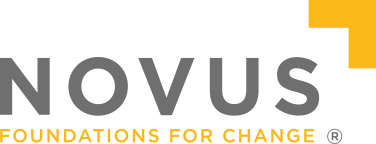Novus and Durham University: Classical Education to Prisons
Adult Provision Arts & Enrichment

Across several of our prisons, we have collaborated with Durham University to integrate Classical education into prison settings with excellent results!
Since 2017, the Advocating Classics Education project has expanded access to Classical Civilisation and Ancient History in state schools, particularly in regions where access to this type of education has been severely limited i.e., the North of England.
The work to bring Classics into the prison education curriculum was a natural next step and welcome by both staff and learners at HMP/YOI Deerbolt.
Now, the project has been successfully piloted in a number of prisons where Novus provide the education provision, with plans to roll out the pilot to more establishments.
The Classics Project
The Classics in prisons project explores a number of key topics in the sessions including:
- Oracy and rhetoric - how to persuade people and how to listen effectively.
- Emotional intelligence and Greek tragedy – how to explore painful emotions.
- Philosophy and ethics – how to live a good life, how to make decisions.
These topics are designed to boost cultural capital, expanding learner’s educational horizons and allowing them to think differently about the past and present. They also map directly onto the British Values curriculum: Democracy (Philosophy), Rule of law (Ethics), Individual liberty (Ethics) and Mutual respect and tolerance (Rhetoric). Critical literacy is a key skill which the course develops linking to all four British values as well as reading between the lines to question ideas and concepts.
While there is a core model for the Classics programme, the team works locally, in collaboration with each establishment where the programme is delivered to position content according to local need, as a way of enriching curriculum delivery.
First pilot at HMP Deerbolt
Professors Edith Hall and Arlene Holmes-Henderson collaborated with Novus at HMP Deerbolt over 4 months in 2024. The course was delivered fortnightly with Durham colleagues and PHD students and focused on essential life skills such as oracy and emotional intelligence, as well as ethics, helping learners to explore e.g. what it means to be happy, or to disagree agreeably.
The course was a huge success amongst learners with 100% of the cohort recommending the sessions to learners in other prison contexts.
Three benefits of the pilot were identified in particular:
- Social cohesion - the course enhanced communication skills (especially listening) and diffused conflict leading to better relationships between prisoners (and staff).
- Intellectual stimulation - learning about philosophy was a highlight for learnings; access to Classics ignited a love for learning which had never existed for many members of the group.
- Mental health and wellbeing - learners reflected that the drama component (learners performed an ancient play in a day) was the closest to ‘fun’ they had experienced in prison and that it helped them consider their actions, and sentences, in new ways.
Second pilot at HMP Swinfen Hall
The second pilot was delivered at HMP Swinfen Hall with the core team teaching the programme, whilst training four more team members so more people could deliver the sessions.
The course was delivered in a week block, to trial a new delivery format but remained focused on the essential life skills from the first pilot including oracy and emotional intelligence, as well as ethics.
The pilot was a huge success at Swinfen Hall, with the projects next pilot being delivered at HMP New Hall in June, an exciting opportunity to trial the programme in the Women’s Estate.
Sarah Hartley, our National Lead for Creative Arts and Enrichment commented positively on the project:
“Working with the Classics team at Durham University has given Novus learners an enriched learning experience, one that they have really engaged with and gained a lot from. Whilst core subjects are very important, so too is understanding how to behave, and through these sessions, Novus learners have learned about persuasion and active listening, emotional intelligence, decision-making, and leading a meaningful life, skills that will help them to thrive on release”.
A learner who participated in the Classics project also spoke positively about his experience:
“My favourite session was Philosophy, I learnt about arguments, how people thought, how they dealt with everyday situations, life and death and morality, you know if something bad happened to someone what does it mean, how did they overcome it as opposed to how we may overcome it now. I think everybody could relate to it, if they just took the time out of their day to research it, to look into it, I think you can take some of these ancient lessons and apply them to modern life”.
The Classics project is an excellent example of how collaborating with universities has helped us provide and deliver more education opportunities for learners, that will enrich learning, deepen their civic impact, and further develop essential life skills needed to contribute positively to society upon release.
An 'Against the Lore in Prison' podcast episode focused on the Classics Project has also been created, and was recorded as part of the first pilot at HMP Deerbolt. The podcast episode explores the project in detail as well as talking to learners who participated in the project about their experiences on the course and the benefits it has had on their learning. To listen to the podcast you can do so here: Against The Lore in Prison.
To learn more about our projects and initiatives to enrich learning, take a look a look at the news section.


